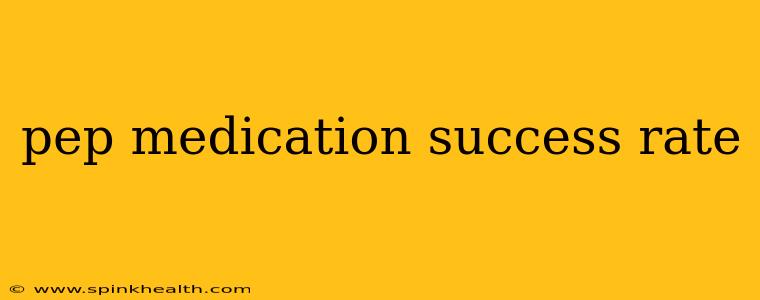The journey with stimulant medication like methylphenidate (Ritalin, Concerta) and amphetamine (Adderall, Vyvanse), often referred to as "pep meds," is intensely personal. There's no single "success rate" because what constitutes success varies greatly from person to person. While these medications can be profoundly helpful for many individuals with ADHD, the experience is far from uniform. Let's delve into the complexities surrounding this question.
What Does "Success" Even Mean with ADHD Medication?
Before we explore numbers, we need to define success. For some, success might mean a complete eradication of ADHD symptoms. For others, it could be a significant reduction in inattentiveness, hyperactivity, or impulsivity, leading to improved focus at work or school, better relationships, and a greater sense of self-efficacy. Still others might find success in managing specific symptoms, such as improved sleep or emotional regulation. There's no one-size-fits-all answer.
So, What are the Numbers? (Or, Why There Aren't Easy Answers)
Studies on ADHD medication effectiveness often report improvement rates, not "success rates." These studies usually focus on symptom reduction as measured by standardized scales. These studies show that a significant percentage of individuals with ADHD experience a noticeable reduction in symptoms with stimulant medication. However, the magnitude of improvement varies widely.
You'll often see improvement rates reported as percentages, but it's crucial to understand the limitations:
- Study Design: Studies differ in their methodologies, participant populations, and outcome measures, making direct comparisons challenging.
- Individual Variation: ADHD is a heterogeneous condition, meaning its presentation varies greatly between individuals. What works for one person might not work for another.
- Dosage and Formulation: The specific medication, dosage, and formulation significantly impact effectiveness. Finding the right "fit" often involves trial and error.
- Comorbid Conditions: The presence of other conditions, such as anxiety or depression, can influence medication response.
Instead of focusing on a single, misleading percentage, think of it this way: for many individuals, stimulant medication offers significant relief and improvement in quality of life. But for some, it may not be the right fit, and finding an effective treatment strategy might require exploring alternative approaches.
What if Pep Meds Don't Work for Me? Are There Alternatives?
What are the most common side effects of ADHD medication?
Side effects vary greatly between individuals and medications. Common side effects can include decreased appetite, difficulty sleeping, headaches, stomach aches, and increased anxiety or irritability. It's essential to discuss any side effects with your doctor. They might be able to adjust the dosage, switch medications, or suggest strategies for managing side effects.
What other treatments are available for ADHD?
Non-medication treatments, such as therapy (particularly cognitive-behavioral therapy or CBT), lifestyle changes (like regular exercise, improved sleep hygiene, and a balanced diet), and educational support, can be highly beneficial. These interventions may be used alone or in combination with medication. Your doctor can help you determine the best treatment plan for your individual needs.
The Bottom Line: A Personalized Approach
The effectiveness of pep meds is highly individual. Instead of chasing a nebulous "success rate," focus on finding a treatment plan that works best for you. Open communication with your doctor, a willingness to experiment with different treatment options, and a proactive approach to managing side effects are crucial for a successful outcome. Remember that "success" in managing ADHD is a journey, not a destination.

